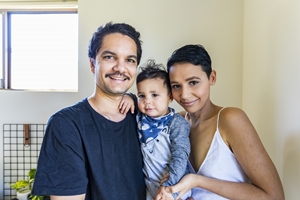Mental illness affects all aspects of life including identity, personal relationships, and engagement in work, education, and leisure. It can disconnect people from their communities and from themselves. The way the journey into and through mental health care is experienced makes a profound difference to the distress experienced by individuals and families, and to personal recovery. Vision 2030 brings the experience of the people who use those services and their families and communities into focus. Its key feature is how people should experience care across this continuum.
What is Vision 2030?
 Vision 2030: Blueprint for Mental Health and Suicide Prevention (Vision 2030) is a blueprint for a successful, connected mental health and suicide prevention system to meet the needs of all Australians. As part of the federal Department of Health’s 10 year plan, it takes a long term approach to change and improvement.
Vision 2030: Blueprint for Mental Health and Suicide Prevention (Vision 2030) is a blueprint for a successful, connected mental health and suicide prevention system to meet the needs of all Australians. As part of the federal Department of Health’s 10 year plan, it takes a long term approach to change and improvement.
Vision 2030 has been delivered through a unified system that takes a whole-of-community, whole-of-life and person-centred approach to mental health; a vision to provide easily navigated, coordinated and balanced community-based services that are offered early to meet each individual's needs and prevent escalating concerns.
Now is the time to implement a new, unified system that can deliver better outcomes and impacts for all Australian’s mental health and wellbeing, from a whole-of-governance, person-centred perspective.
- CHRISTINE MORGAN
NATIONAL MENTAL HEALTH COMMISSION CEO-
How does Vision 2030 fit within other sector reform initiatives?
 The third pillar of Australia’s Long Term National Health Plan focuses on mental health and preventative health and prioritises the delivery of a number of long term plans and strategies for Mental Health.
The third pillar of Australia’s Long Term National Health Plan focuses on mental health and preventative health and prioritises the delivery of a number of long term plans and strategies for Mental Health.
Although unique in their focus, these strands of work have significant common areas of review and shared scope in planning for the future. This includes overarching strategic and systemic review, planning for specific issues or target populations and implementing key programs and reforms.
Vision 2030 aims to maintain consistency with the Productivity Commission inquiry into Mental Health and a number of other state, territory and national activities. Although distinct processes, there are a number of overlapping goals and intended outcomes. Vision 2030 provides a framework through which current recommendations, future strategies and plans can be viewed to ensure a consistent approach towards the same goals for the future mental health system of Australia.
Vision 2030 Development
The development of Vision 2030 occurred across three distinct phases:
- Lived experience and community engagement through the Connections Project (July – October 2019)
- Development of the Vision 2030 Blueprint Framework (September – December 2019)
- Development of the final Vision 2030; Blueprint for Mental Health and Suicide Prevention and accompanying Opportunities for Implementation (January 2020 – March 2022)
A Vision 2030 Advisory Committee was convened in April 2020 to guide the development of the final product and provide their expert advice. The Committee consisted of Commonwealth and State governments, consumer and carer representatives, mental health peak bodies, Aboriginal community-controlled health organisations, professional associations, centres of excellence in mental health research, clinicians and individual professionals.
During 2020, targeted and public consensus building consultation was conducted with individuals and key stakeholder groups including State and Territory governments, lived experience, research and academia, clinical expertise, and service providers to refine content. In addition to new consultation activities, publicly available consultation input was also reviewed, analysed and incorporated into the framework. This included close engagement with reform processes and reports, such as that of the Productivity Commission.
You may also be interested in
 Vision 2030: Blueprint for Mental Health and Suicide Prevention (Vision 2030) is a blueprint for a successful, connected mental health and suicide prevention system to meet the needs of all Australians. As part of the federal Department of Health’s 10 year plan, it takes a long term approach to change and improvement.
Vision 2030: Blueprint for Mental Health and Suicide Prevention (Vision 2030) is a blueprint for a successful, connected mental health and suicide prevention system to meet the needs of all Australians. As part of the federal Department of Health’s 10 year plan, it takes a long term approach to change and improvement. The third pillar of
The third pillar of